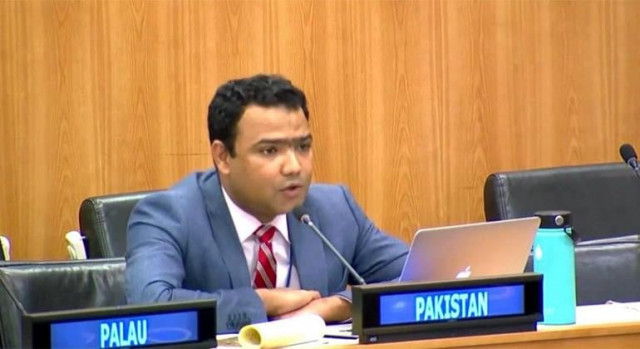Pakistan voices alarm over arms supplies to India, calls for strategic restraint in South Asia
Pakistan's UN counsellor urges focus on destabilising effects of arms transfers in conflict-prone areas at UN debate

Pakistan expressed concerns on Tuesday over the continued supply of advanced weapons and sensitive technologies to "one state" in South Asia, a veiled reference to India, warning that it fuels regional instability.
Gul Qaiser, a counsellor at Pakistan’s UN mission, raised the issue during a United Nations General Assembly debate on conventional weapons, urging the international community to consider the destabilising impact of arms transfers in volatile regions.
Addressing the Disarmament and International Security Committee, Qaiser argued that in a world beset by conflict, certain nations are prioritising military financing over peace initiatives. This, he noted, challenges peace-building efforts when collaboration is needed most.
Referring to the limited effectiveness of initiatives like the Arms Trade Treaty (ATT), he highlighted that advanced weaponry continues to flood conflict-prone areas, often worsening disputes and contributing to atrocities, including genocides.
“In South Asia, one state is being supplied with advanced weapons and sensitive technologies, leading to destabilising accumulations,” said Qaiser, citing the nation’s defiance of UN Security Council resolutions and hostile policies toward neighbouring countries.
He underscored Pakistan's commitment to establishing a strategic restraint regime in South Asia, advocating for a balanced conventional force approach.
He stated that “Pakistan neither wants, nor is engaged in, an arms race in the region,” and called for addressing the root causes fueling the arms trade rather than merely managing its effects.
On global arms control, Qaiser underscored the importance of the Convention on Certain Conventional Weapons (CCW) in maintaining a “delicate balance” between humanitarian concerns and the security interests of states.
He also raised Pakistan’s alarm over the potential use of improvised explosive devices (IEDs) by non-state actors, calling for collective action to counter the threat. The delegate urged further dialogue on Lethal Autonomous Weapon Systems (LAWS), also known as "killer robots."
Qaiser advocated for an international protocol to regulate autonomous weapons, ensuring that such systems comply with humanitarian law and align with the CCW’s aims.
He also called for global cooperation to address broader concerns about artificial intelligence (AI) in military applications, noting that AI-enhanced weapons require urgent international attention beyond current humanitarian frameworks.



















COMMENTS
Comments are moderated and generally will be posted if they are on-topic and not abusive.
For more information, please see our Comments FAQ